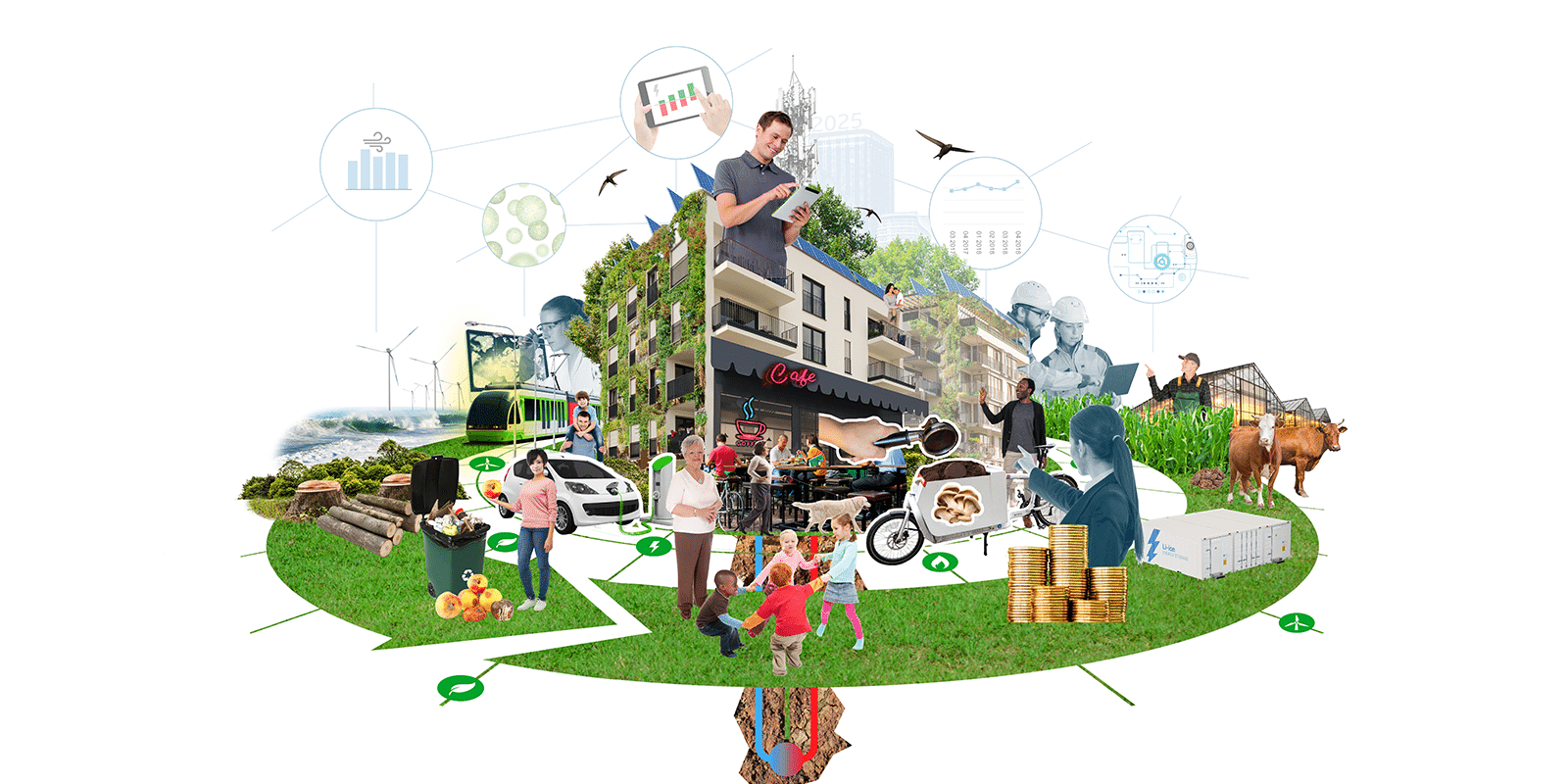Aim of the call
As an integral part of comprehensive sustainable urbanisation strategies, establishing Positive Energy Districts and Neighbourhoods shifts the focus from the individual positive energy building towards neighbourhoods and thus a new level of impact on sustainable urban development and the energy transition process. With this call, JPI Urban Europe aims to continue creating a transdisciplinary and cross-sectoral community working in the field of the energy transition in the urban context, aiming for high stakeholder involvement, collaboration and co-production of knowledge.
Participating countries: Austria, Brussels Capital Region, Denmark, Netherlands, Italy, Romania, Sweden, Turkey
The call opened in October 2021 and closed in February 2022. The projects started in July 2022 and are expected to end in the beginning of 2025.
Call topics
Topic 1: PEDs towards climate neutrality: transforming existing urban neighbourhoods
With the formulation of the European Green Deal and the Mission on Climate-Neutral and Smart Cities under the Horizon Europe framework programme, the European Commission has set ambitious goals regarding climate change adaptation and the energy transition. This call on Positive Energy Districts and Neighbourhoods for Climate Neutrality aims at aligning PED development with these ambitions and fostering PED development as a key building block towards climate neutrality. For European urban areas this implies a strong focus on existing urban structures and therefore innovative retrofitting and re-design strategies towards Positive Energy districts and climate-neutral neighbourhoods.
Objectives
The main objectives of this topic include:
- Development of feasible implementation strategies for Positive Energy Districts in existing, potentially historical, urban neighbourhoods
- Identification and characterisation of PEDs as key contributors to the goal of the Horizon Europe Mission on Climate-neutral and Smart Cities to create 100 climate-neutral cities by 2030. This is to be achieved by developing integrated strategies of urban retrofitting.
- Establish necessary conditions for successful dissemination and replication of PEDs beyond this project
- Integrate PED strategies in related policy areas, including mobility and climate adaptation
Topic 2: Making PEDs happen: process innovation and business models
This topic focuses on the process innovation and economic feasibility for PED development. It aims at developing strategies for stakeholder cooperation, business models, public-private partnership and regulatory framework under the primate of environmental, social and economic sustainability.
Objectives
The main objectives of this topic include:
- Development of strategies for the implementation of PEDs in government, business and the public, which includes
- making PEDs an integral part of urban planning processes starting from an urban/district analysis in order to define regulatory, structural and technical constraints
- establishing public-private partnerships, as well as partnerships with businesses (especially focusing on city authorities, the real estate industry and utilities)
- Reinforce decision-making processes both inside and outside local government
- Establishment and maintenance of broad support within government, business and the public at large for realising PEDs
- The safeguarding of circularity aspects and life-cycle-principles in business models and the regional energy system while respecting (natural) system boundaries and considering public interest
Timeline
Call opening: October 20th 2021
Proposal deadline: February 24th 2022, 12:00 CET
Eligibility Check: February 2022
Meeting of Expert Panel to assess proposals: May 2022
Funding recommendation by the Steering Committee: June 2022
National funding decisions and announcement of results to Main Applicants: June 2022
Earliest expected start of the projects: July 2022
Kick-off meeting: Late 2022/early 2023
Mid-term meeting: Late 2023/early 2024
Final Projects Event: Late 2024/early 2025
Funded projects
Search for projects in other calls
Call information webinar: Positive Energy Districts and Neighbourhoods for Climate Neutrality
See the recording from the webinar here!
Documents
>> Call Text
>> List of national contact points
>> Call presentation
>> Call flyer
Call secretariat
Paul Kuttner
Austrian Research Promotion Agency (FFG)
paul.kuttner@ffg.at
+43 5 77 55 5069
Johannes Bockstefl
Austrian Research Promotion Agency (FFG)
johannes.bockstefl@ffg.at
+43 5 77 55 5042
Funding Agencies and national contact points
> List of national contact points
| Country/ region | Funding agency |
| Austria | FFG |
| Brussels-Capital Region | Innoviris |
| Denmark | Innofund |
| Netherlands | RVO |
| Italy | MUR |
| Romania | UEFISCDI |
| Sweden | SWEA |
| Turkey | TÜBITAK |

